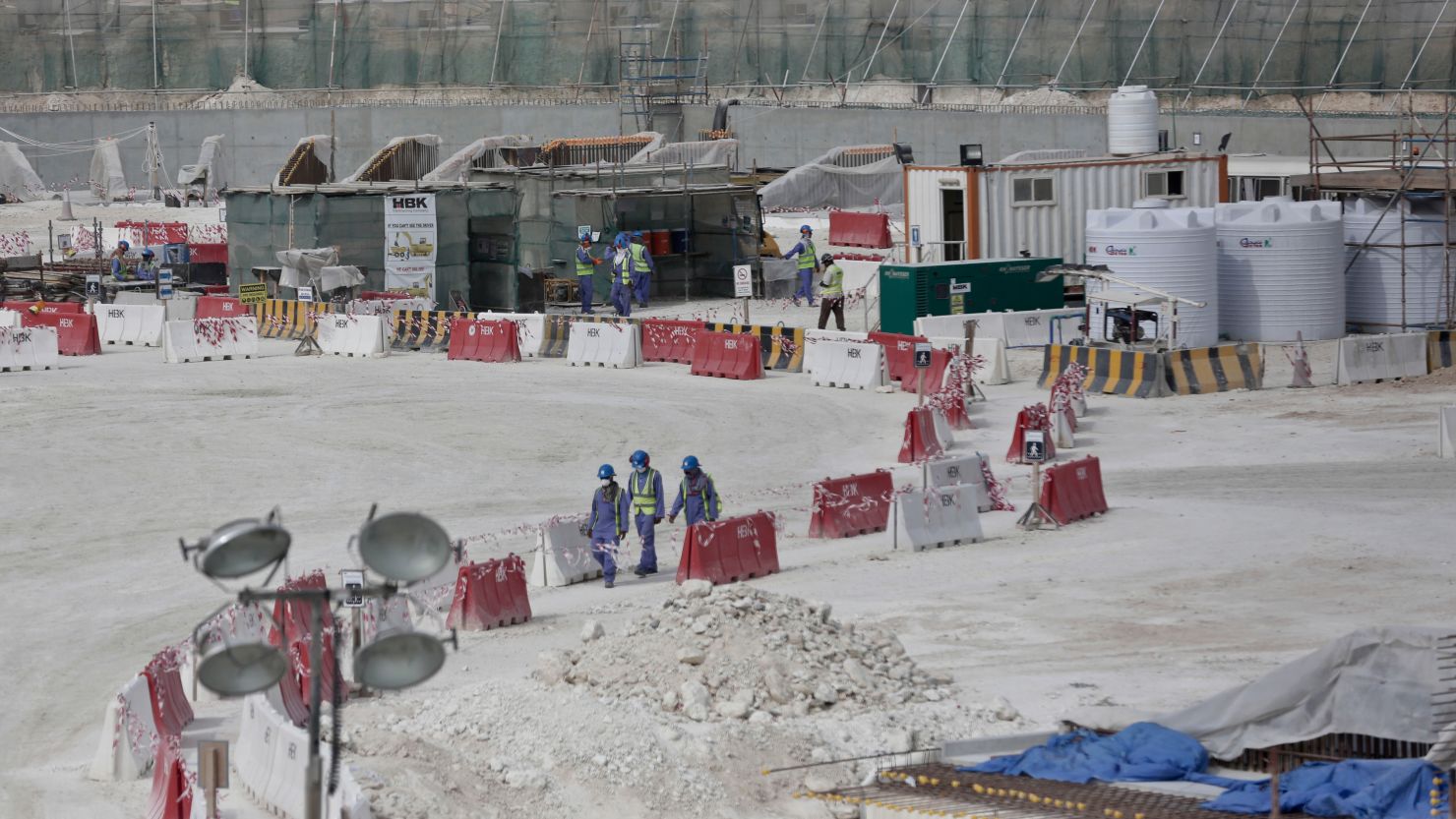As the 2022 World Cup comes to a close, global rights organizations have renewed criticism of Qatar and FIFA over the treatment of thousands of migrant workers who built stadiums and tournament infrastructure.
The World Cup final on Sunday coincides with both International Migrants Day and Qatar National Day.
“However good the football has often been, the tournament has come at a heavy cost for hundreds of thousands of workers who have paid illegal recruitment fees, had wages stolen or even lost their lives,” Amnesty International’s head of economic and social justice Steve Cockburn said in a statement to CNN.
He added that workers and their families “deserved compensation” from the authorities.
“We are still waiting for FIFA and Qatar to commit to ensuring remedy for everyone who made this World Cup possible,” he said.
FIFA president Gianni Infantino on Friday praised organizers and volunteers for staging the “best World Cup ever” – but critics have said his comment ignored the sacrifices of migrant workers, often subjected to harsh and squalid living and working conditions.
Amnesty International, Human Rights Watch, Equidem and Migrant Defenders and other groups have all called on Qatar and FIFA to do more for migrant workers who delivered the World Cup.
FIFA has also been criticized by Ukraine’s presidential office for refusing to show a peace message from President Volodymyr Zelensky ahead of the final.
“FIFA has a human rights policy with clear rules protecting human rights but far too often, FIFA sided with its wealthy partner Qatar against the most vulnerable,” said Minky Worden, global initiatives director at Human Rights Watch.
Worden also said labor reforms from Qatari authorities “came too late” and were “too narrow” or “weakly implemented” to benefit many migrant workers.
“This World Cup in Qatar will indeed be remembered, for all the wrong reasons: as the most expensive sporting event ever – and the most deadly,” she added.
Labor rights organization Equidem called on Infantino to support the establishment of an independent Migrant Worker Center in Qatar following the World Cup.
Qatar, a tiny country smaller than Connecticut, has been at the center of world attention over the last few weeks. But its hosting of the World Cup has also shone a spotlight on its human rights record.
Deaths of migrant workers in the country in the years leading up to the competition have also drawn fierce criticism.
According to government estimates, over 30,000 foreign laborers, mostly men from south Asian countries like India, Pakistan, Nepal and Bangladesh, were brought in to build stadiums. The Gulf state also expanded its airport and constructed new hotels, rail and highways.
Malcolm Bidali, co-founder of the Nairobi-based Migrant Defenders and a former security guard in Qatar, told CNN this week that he was worried about the plight of migrant workers after the spotlight of the World Cup moves on.
“As we speak, we still have people not getting paid, people are still living in cramped conditions, we have people still facing physical, verbal and sexual assault, discrimination, long working hours and horrible working conditions,” Bidali said.

